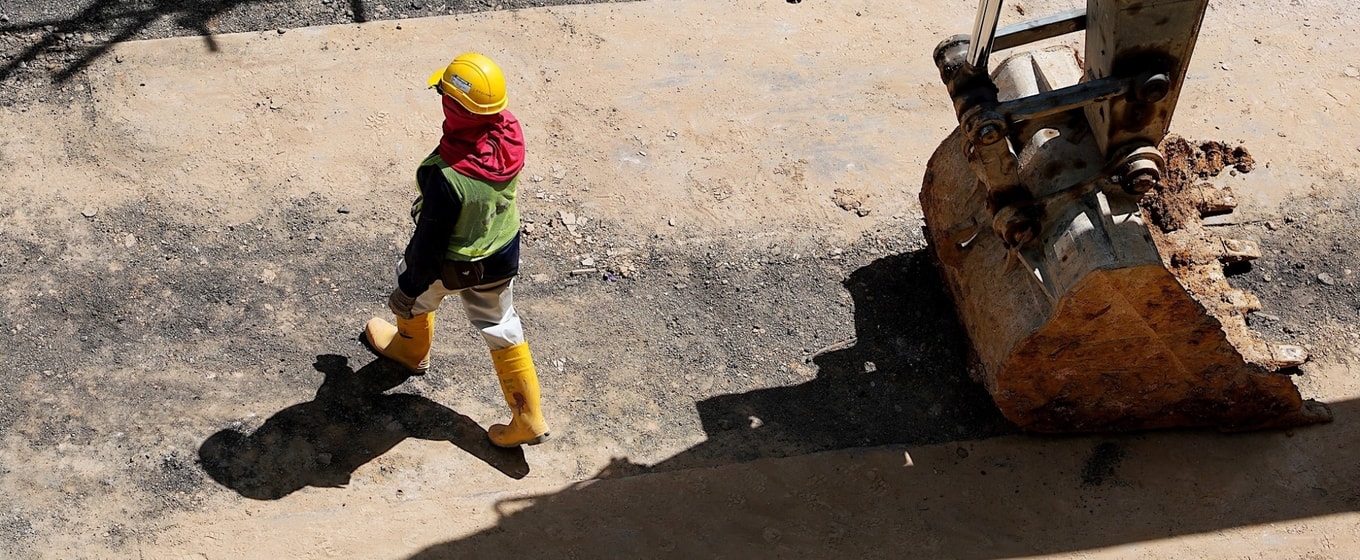Originally, the IR35 rules were due to be changed in April 2020. Now, due to the impact of coronavirus on UK businesses, the Government has confirmed that the changes to IR35 will be delayed until April 2021. This gives businesses almost a year to undertake their reviews and ensure that all contractors are being treated appropriately for tax purposes.
During this period, construction companies are advised to seek legal advice to undertake factual assessments of their contractor relationships, and to review the wording of their legal contracts to ensure the most appropriate approach is taken to ensure IR35 compliance. More on this later, but first, let's take a look at the key facts:
What are the IR35 rules?
HMRC uses the IR35 rules to ensure that individuals do not provide services through a personal service company (PSC), and therefore receive certain tax benefits, when they are actually a ‘disguised employee’ (and should therefore be taxed as an employee).
The IR35 rules require assessments to be made, which include looking at factors such as:
- Whether a substitute could provide the services
- Is there a ‘mutuality of obligation’ between the parties?
- Whether the individual has, in effect, become an employee of the client
- Does the contractor provide services to other clients?
So what’s changing?
The IR35 rules are changing, not in their substance, but in terms of where the burden for compliance lies. For medium and large-sized companies, the ‘client’ in the supply chain will become responsible for ensuring that the individual contractor is being treated in the correct way for tax purposes. Currently, this responsibility lies with the contractor.
Medium and large-sized companies are any companies that are not small companies. Small companies are defined as having, in a 12-month period, any 2 of the following criteria:
- A turnover under £10.2 million
- A balance sheet under £5.1 million
- Less than 50 employees
So, although the rules themselves aren’t changing, a more significant emphasis is being placed on ensuring that individual consultants are taxed appropriately, as larger companies will now bear the burden when things go wrong.
And the IR35 changes will impact companies within a supply chain, even if only one company is a medium or large company.
For example, if a client company is a large company, but a hiring agency and a contractor (working through a personal service company) are small companies, all companies in the supply chain will still require to comply with the IR35 rules.
How does this affect the construction industry?
With full-time employment in the construction sector decreasing significantly in the past decade, the changes being brought in to the Off-Payroll Workers Rules (otherwise known as IR35) will have a more significant impact on the construction sector than other industries.
This is because there is a higher reliance on self-employed workers, with 30-40% of the construction sector working as contractors. This arrangement naturally lends itself to the flexibility required in many construction projects across the UK. Many of these contractors operate through a personal service company (a limited company, with one individual providing services through that company).
How can construction companies prepare for the changes:
There are several steps that construction companies are advised to take at this time. These are:
1. Undertake assessments of any contractors providing a service to you through a limited company. Assessments should be taken on a case-by-case basis, remembering that HMRC will look at the individual circumstances of each contractor, and not just what their contract says. It may be helpful to use the HMRC CEST Assessment Tool to carry out your analyses.
2. If there is a ‘grey area’ in terms of the assessment, it may be preferable to err on the side of caution – otherwise, HMRC fines are looming.
3. For individuals you deem to be ‘inside IR35’ (i.e. likely to be treated by HMRC as a ‘disguised employee’), arrange for them to be set up on payroll, and start collecting income tax and national insurance contributions.
4. For individuals you deem to be ‘outside IR35’ (i.e. genuine service providers, who should not be treated as employees), keep the situation under regular review to ensure you comply with the rules.
What about CIS?
The construction sector must also consider the construction industry scheme (CIS), which is a tax deduction scheme, whereby tax is deducted at the source from payments made from contractors to sub-contractors.
Sub-contractors that are registered with HMRC and pass three tests (the business, turnover and compliance tests) are to receive gross payments, without tax deductions, from the main contractor.
Whilst construction companies may have believed that CIS was a way of avoiding IR35, HMRC has stated that IR35 takes precedence over CIS. Therefore, all construction companies that are medium or large companies (or have a medium or large company in their supply chain) must comply with the amended IR35 rules.
About the Author
Barbara Jamieson is a LawBrief at LawBite, the UK’s leading online legal portal powering a fully SRA regulated and insured UK law firm that specializes in commercial law for business. Barbara Jamieson is qualified in Scotland, New York and California, and has worked at top Scottish law firms Maclay Murray and Spens LLP and Brodies LLP. Barbara also spent three years working in-house at investment management firm Martin Currie, advising on financial services and commercial contracts.






These cookies are set by a range of social media services that we have added to the site to enable you to share our content with your friends and networks. They are capable of tracking your browser across other sites and building up a profile of your interests. This may impact the content and messages you see on other websites you visit.
If you do not allow these cookies you may not be able to use or see these sharing tools.